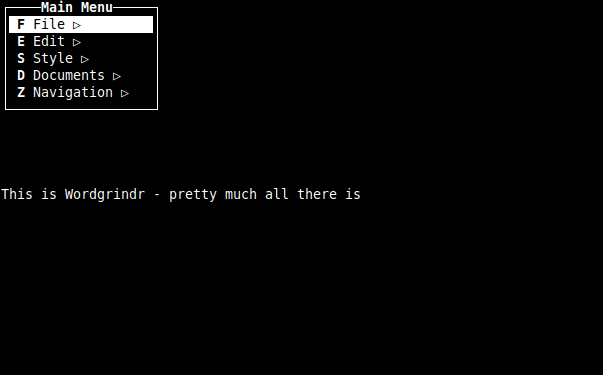
Someone I know came to me the other day about a consulting project that may or may not happen. What essentially he wants to be done is an overhaul of IT infrastructure. They want more automation in their operation and they deal with physical goods. So from receiving to shipping to everything in between they are looking to streamline. They want to do more with less, less equipment if possible, fewer people if possible, and less stress if possible. In other words, they want what every other company in the world wants.
Currently, they have a software package that does some of this, but it doesn’t do everything they want it to be able to do. I don’t have implicit knowledge of the package, other than I created firewall rules when I was consulting with Symantec to pass the traffic. So my first question is about the scope of the project. The person I was talking to didn’t exactly know what I meant by that. They were more worried about the big-picture ideal instead of what a consultant would need to work with. A vision of the end goal is great, but without specific tasks to get there, it definitely puts an implementer at a disadvantage. He stated that we would have to do a sit-down and discuss the issue and layout of the business process. This is a good step, but part of why I’m writing this is to help others know the answer they should have when going into something of this magnitude.
Easy, Hard and Correct
The first question is why do you want to do this? There are easy answers, there are hard answers, and there are correct answers to this question. Some of the easy answers include – I want everything to work together better, we want to build to the future, and I have to spend my budget before the end of the fiscal cycle and want to try out this product. Hard answers include we want something more manageable for our IT staff, we want it to run faster in our environment, and we want something we can understand.
There are reasons that these are easy answers and hard answers. The first and foremost thought is to remember to sit down with a consultant or someone who understands the technology thoroughly enough before ever sitting down with a salesperson. To salespeople, these are all easy and correct answers. They will tell you your toast can be used to transport computer network traffic with the right purchase, they are there to get your money. It’s the one reason I can never be a salesperson. I like people using the correct solution, not necessarily the solution that I am selling. Even when I worked at Symantec, I knew Symantec products were not the best products for all customers. Some customers only changed products because they had money to spend and ended up worse off for it. Salespeople are tricky creatures that guard their bonuses like Disney guards its copyrights.
Easy answers are normally very vague, they tell a salesperson or consultant that you haven’t really thought too much about the problem. You have a basic idea of what you want, but you don’t know any specifics. The problem with the easy answers is that they are also the most expensive answers – this allows those that are implementing something to sell you what they think is best, regardless of how it will fit into your business six months down the road when they are gone. You will have to make some decisions on your own, and this should not be listening to the best sales pitch from two competing vendors. The best sales pitch does not necessarily equate to the best product.
Why are the hard answers difficult? That’s because everything is relative. Going back to my examples can show you this. We want something more manageable for our IT staff, well how trained is your IT staff? Do your employees know alternative operating systems? Does your staff only run Microsoft products? Is this faster for your environment? What about a year down the road and the nightmare efficient system breaks because of infrastructure changes you were forced to make? Everything comes down to you knowing your environment and your plans for the future. A consultant only gets a glimpse of time into your configuration and is not going to be the full-time employee running this stuff. They won’t know how your future plans could be affected if you don’t tell them your future plans.
The correct answer? That includes being as specific as possible. Let’s say this is to implement an Exchange Server migrating from a Lotus Notes architecture. Why would I want to do this? Lotus Notes has been long in the process of being a headache for us. The administrator that runs it is retiring in six months and we have other employees that could scale up quickly to learn Exchange and then Lotus Notes. The collaborative features in exchange work in Outlook, which our company already loads on all the desktops since we have a full Microsoft Office License on all of the desktops. About 30% of our users already use outlook to retrieve their e-mail, even though they all have the Notes client installed on their desktops also. Being able to consolidate this would save us thousands a year since we would no longer need a support contract or license fees paid to IBM to support the old Lotus infrastructure. The more complete and specific the answer, the better the consultant can answer your questions.
Do You Listen To Alternatives?
Even in the Exchange scenario seems complete. How rigid are you to suggestions? What if the consultant offers up other alternatives such as a web-based e-mail solution that would still allow Exchange to connect and retrieve e-mail? While a Linux/Apache approach may be cheaper, you could also implement it on top of IIS. Building with some other technologies you could gain all the collaborative powers of Exchange for thousands of dollars less. Those who didn’t want to use Outlook could use a browser. If you combine this with a secure remote access solution this would allow for a possible quicker and less bandwidth connection for telecommuters if that is where your company is going.
Knowing what your plans are and how rigid they need to help a consultant decide what avenues may be the best approach for you. While I offered up a free solution, another consultant may offer ways to augment your current Notes infrastructure to fit your needs. The best consultants will offer alternatives to your current line of thinking. You do not have to listen to them, and you can stay focused, but hearing how open you are is important.
Timeline
A timeline is something you should have in mind sitting down with the consultant. He needs to know deadlines and what your expectations are. Does this need to be done in a week or a year? How are your current employees going to ramp up on the new solution? While a consultant may reset your timelines to something more realistic, knowing what type of time frame you are trying to achieve is important to the success of the project. It also tells the consultant if they are going ot need to bring in more outside help.
Breakdown of Tasks
Have you compartmentalized your tasks? The person that contacted me was looking for a complete end to end solution, is this what best? In a solution like that how are you going to handle the transition time? You don’t want to migrate the whole solution at the touch of a button, since any big architecture change can effect your business continuity. For some businesses any downtime at all is lost revenue. A consultant wants to make this impact as minimal as possible. Even when you do the best planning and compartmentalizing sometimes you will get stuck on a twenty-three hour conference call working through the issues of down time. When this happens I can tell you it’s not fun. That was also with a staged migration.
What segments of your business can be down for hours at a time? When you can answer that you can start staging your tasks. The tasks that can be down the longest generally should be the first ones migrated, since they should give you expectations for later tasks, and allow you to plan accordingly. Do not re-architect the design so the whole system (no matter how small) to be done in one night if there are multiple groups effected in the transition. Design the impact to be as small as possible. Yes, this may increase time – which in turn increases expense, but without proper planning it may cost you more in the long run.
Cost
The question that no likes asking or giving, what is your budget for this task. You can wait for the consultant to make a cost estimate pitch first if you like – but at some point in the conversation cost is going to come up. Do your homework ahead of time to see how much you expect it to cost and budget accordingly. What are you going to do if things go over budget? If your three quarters way through a project and haev no more money to finish it, how is that going to impact you?
In Closing
This may seem like a list of things that I want as a consultant. These are however fairly common truths on what a consultant needs to start a project properly instead of spinning their wheels. In the next week or so I’m going to follow this up with how to spot a good consultant versus a bad one.







